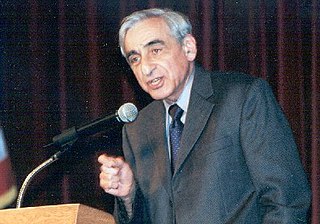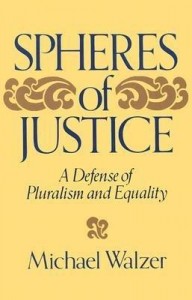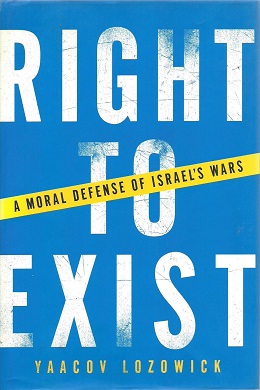
Civilian casualties occur when civilians are killed or injured by non-civilians, mostly law enforcement officers, military personnel, rebel group forces, or terrorists. Under the law of war, it refers to civilians who perish or suffer wounds as a result of wartime acts. The term is generally applied to situations in which violence is committed in pursuit of political goals. During periods of armed conflict, there are structures, actors, and processes at a number of levels that affect the likelihood of violence against civilians.

The law of war is the component of international law that regulates the conditions for initiating war and the conduct of warring parties. Laws of war define sovereignty and nationhood, states and territories, occupation, and other critical terms of law.

Combatant is the legal status of a person entitled to directly participate in hostilities during an armed conflict, and may be intentionally targeted by an adverse party for their participation in the armed conflict. Combatants are not afforded immunity from being directly targeted in situations of armed conflict. The legal definition of "combatant" is found at article 43(2) of Additional Protocol I (AP1) to the Geneva Conventions of 1949. It states that "Members of the armed forces of a Party to a conflict are combatants, that is to say, they have the right to participate directly in hostilities." Consequently, on the other hand combatants, as a rule, are legal targets themselves for the opposite side regardless the specific circumstances at hand, in other words, they can be attacked regardless of the specific circumstances simply due to their status, so as to deprive their side of their support.

The just war theory is a doctrine, also referred to as a tradition, of military ethics which is studied by military leaders, theologians, ethicists and policy makers. The purpose of the doctrine is to ensure that a war is morally justifiable through a series of criteria, all of which must be met for a war to be considered just. The criteria are split into two groups: jus ad bellum and jus in bello. The first group of criteria concerns the morality of going to war, and the second group of criteria concerns the moral conduct within war. There have been calls for the inclusion of a third category of just war theory dealing with the morality of post-war settlement and reconstruction. The just war theory postulates the belief that war, while it is terrible but less so with the right conduct, is not always the worst option. Important responsibilities, undesirable outcomes, or preventable atrocities may justify war.
Jus ad bellum is a set of criteria that are to be consulted before engaging in war in order to determine whether entering into war is permissible, that is, whether it will be a just war. This is distinct from the set of rules that ought to be followed during a war, known as jus in bello.

Michael Laban Walzer is an American political theorist and public intellectual. A professor emeritus at the Institute for Advanced Study (IAS) in Princeton, New Jersey, he is editor emeritus of Dissent, an intellectual magazine that he has been affiliated with since his years as an undergraduate at Brandeis University. He has written books and essays on a wide range of topics—many in political ethics—including just and unjust wars, nationalism, ethnicity, Zionism, economic justice, social criticism, radicalism, tolerance, and political obligation. He is also a contributing editor to The New Republic. To date, he has written 27 books and published over 300 articles, essays, and book reviews in Dissent, The New Republic, The New York Review of Books, The New Yorker, The New York Times, Harpers, and many philosophical and political science journals.
International humanitarian law (IHL), also referred to as the laws of armed conflict, is the law that regulates the conduct of war. It is a branch of international law that seeks to limit the effects of armed conflict by protecting persons who are not participating in hostilities and by restricting and regulating the means and methods of warfare available to combatants.

Surrender, in military terms, is the relinquishment of control over territory, combatants, fortifications, ships or armament to another power. A surrender may be accomplished peacefully or it may be the result of defeat in battle. A sovereign state may surrender following defeat in a war, usually by signing a peace treaty or capitulation agreement. A battlefield surrender, either by individuals or when ordered by officers, normally results in those surrendering becoming prisoners of war.
America in Vietnam is a book by Guenter Lewy about America's role in the Vietnam War. The book is highly influential although it has remained controversial even decades after its publication. Lewy contends that the US actions in Vietnam had been neither illegal nor immoral and that tales of American atrocities were greatly exaggerated in what he understands as a "veritable industry" of war crimes allegations.

Global justice is an issue in political philosophy arising from the concern about unfairness. It is sometimes understood as a form of internationalism.

Spheres of Justice: A Defense of Pluralism and Equality is a 1983 book by the philosopher Michael Walzer.

A crime of aggression or crime against peace is the planning, initiation, or execution of a large-scale and serious act of aggression using state military force. The definition and scope of the crime is controversial. The Rome Statute contains an exhaustive list of acts of aggression that can give rise to individual criminal responsibility, which include invasion, military occupation, annexation by the use of force, bombardment, and military blockade of ports. Aggression is generally a leadership crime that can only be committed by those with the power to shape a state's policy of aggression, rather than those who carry it out.
Jefferson Allen McMahan is an American moral philosopher. He has been White's Professor of Moral Philosophy at the University of Oxford since 2014.
Jus post bellum is a concept that deals with the morality of the termination phase of war, including the responsibility to rebuild. The idea has some historical pedigree as a concept in just war theory. In modern times, it has been developed by a number of just war theorists and international lawyers. However, the concept means different things to the contributors in each field. For lawyers, the concept is much less clearly defined, and many have rejected the usefulness of the concept altogether. The concept continues to attract scholarly interest in the field of international humanitarian law.

Right to Exist: A Moral Defense of Israel's Wars is a book by German-born Israeli historian Yaacov Lozowick, the director of archives at the Holocaust Martyrs' and Heroes' Remembrance Authority.

Just and Unjust Wars: A Moral Argument with Historical Illustrations is a 1977 book by the philosopher Michael Walzer. Published by Basic Books, it is still in print, now as part of the Basic Books Classics Series. A second edition was published in 1992, a third edition in 2000, a fourth edition in 2006, and a fifth edition in 2015. The book resulted from Walzer's reflections on the Vietnam War.
Political ethics is the practice of making moral judgments about political action and political agents. It covers two areas. The first is the ethics of process, which deals with public officials and their methods. The second area is the ethics of policy, which concerns judgments surrounding policies and laws.
Human shields are legally protected persons—either civilians or prisoners of war—who are either coerced or volunteer to deter attacks by occupying the space between a belligerent and a legitimate military target. The use of human shields is forbidden by Protocol I of the Geneva Conventions. It is also a specific intent war crime as codified in the Rome Statute, which was adopted in 1998. The language of the Rome Statute prohibits "utilizing the presence of a civilian or other protected person to render certain points, areas, or military forces immune from military operations."
In just war theory, a supreme emergency is a situation where a state faces an existential threat from an agressor, which scholars like Michael Walzer and John Rawls argue justifies otherwise unjust action.

Selective conscientious objection is the practice of refusing some, but not all, military service. It is much more controversial than blanket conscientious objection based on consistent pacifism. Views on selective conscientious objection range from being morally impermissible, morally permissible, a right that may be exercised, or morally obligatory in the case of military personnel asked to fight an illegal war of aggression.












